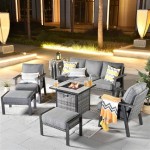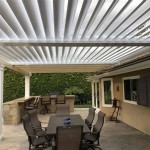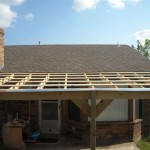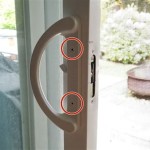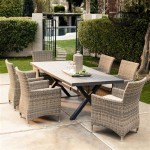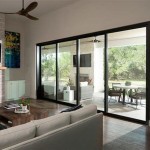Patio Sliding Screen Door Options at Menards: A Comprehensive Guide
Patio sliding screen doors are essential components for homes seeking to seamlessly blend indoor and outdoor living. They provide ventilation while keeping insects and debris outside, enhancing comfort and enjoyment of a patio or deck area. Menards, a popular home improvement retailer, offers a variety of patio sliding screen doors to suit diverse needs and budgets. Understanding the options available, the factors to consider when selecting a door, and the installation process are crucial for achieving a successful outcome.
This article will provide a comprehensive overview of patio sliding screen door options at Menards, exploring different materials, styles, features, and considerations for proper installation and maintenance. The aim is to equip readers with the knowledge necessary to make an informed decision when purchasing a patio sliding screen door from Menards.
Understanding the Types of Patio Sliding Screen Doors Available
Menards typically stocks a range of patio sliding screen doors, categorized primarily by their frame material and construction. These categories influence the door's durability, aesthetic appeal, and price point. Common types include aluminum, vinyl, and wood-clad screen doors. Each material offers distinct advantages and disadvantages that should be carefully weighed before making a purchase.
Aluminum screen doors are known for their strength and resistance to rust and corrosion. This makes them a popular choice for coastal regions or areas with high humidity. Aluminum frames are generally lightweight, making the door easy to operate. They can be painted to match existing trim or exterior colors. However, aluminum can dent more easily than other materials and may transfer heat or cold more readily, potentially impacting energy efficiency.
Vinyl screen doors are another common option. Vinyl is a low-maintenance material that is resistant to warping, rotting, and fading. It offers good insulation properties, helping to reduce energy costs. Vinyl frames are typically available in white or tan, although some models may offer options for painting. While vinyl is durable, it may not be as strong as aluminum and can become brittle in extreme cold. The aesthetic appeal of vinyl is often considered less elegant compared to wood or aluminum.
Wood-clad screen doors offer the aesthetic appeal of natural wood with the added protection of an exterior cladding, usually aluminum or vinyl. The wood interior can be stained or painted to match the home's interior design, while the exterior cladding provides resistance to weather elements. These doors are generally more expensive than aluminum or vinyl options but offer a premium look and feel. The cladding protects the wood from moisture and insect damage, extending the door's lifespan.
Beyond the frame material, the type of screening also differs. Standard fiberglass screening is the most affordable and common option, providing adequate insect protection. Aluminum screening is more durable and resistant to damage from pets or weather. Pet-resistant screening, made from a thicker and more durable material, is designed to withstand scratching and clawing from animals. Solar screening is designed to block a portion of the sun's UV rays, helping to reduce heat gain and fading of interior furnishings.
Furthermore, some patio sliding screen doors feature integrated handles and locking mechanisms. The quality and design of these components can significantly impact the door's ease of use and security. Simple latch mechanisms are common, while more advanced models offer multi-point locking systems for enhanced security.
Key Considerations When Selecting a Patio Sliding Screen Door
Choosing the right patio sliding screen door involves considering several factors beyond the initial material selection. These considerations include the door's size, its compatibility with the existing patio door frame, the desired level of security and durability, and the overall aesthetic appeal. Failure to address these factors can result in a poorly fitting or functioning door, leading to frustration and additional expenses.
Accurate measurements are paramount. The height and width of the existing patio door frame opening must be carefully measured to ensure a proper fit. Many patio sliding screen doors are available in standard sizes, but custom sizes may be necessary for older homes or non-standard openings. Menards associates can often assist with measuring and determining the appropriate size door. It is advisable to measure the opening in multiple places to account for any inconsistencies or irregularities.
Compatibility with the existing patio door frame is another crucial consideration. The screen door must be designed to slide smoothly within the existing track and align properly with the door frame. Some patio door manufacturers use proprietary track systems, requiring a specific type of screen door. It's important to determine the brand and model of the existing patio door to ensure compatibility. Bring photos and measurements to Menards to aid in the selection process.
Durability and security are important factors, particularly for homes in areas prone to severe weather or security concerns. Aluminum or wood-clad screen doors generally offer greater durability than vinyl options. Look for doors with reinforced corners and sturdy locking mechanisms. Consider upgrading to a more durable screening material, such as aluminum or pet-resistant screening, if pets or children will be frequently using the door.
The aesthetic appeal of the screen door should complement the home's overall design. Choose a frame material and color that matches or complements the existing patio door and exterior trim. Consider the style of the door, such as a simple sliding design or a more elaborate decorative style. The screening material should also be considered, as some options are more transparent than others. A more transparent screening material will provide a clearer view of the outdoors.
Energy efficiency can also be a relevant factor, especially for homes in climates with extreme temperatures. Vinyl and wood-clad screen doors offer better insulation properties than aluminum options. Consider adding weather stripping around the perimeter of the door to minimize air leaks. Solar screening can help to reduce heat gain and fading of interior furnishings, further improving energy efficiency.
Installation and Maintenance of Patio Sliding Screen Doors
Proper installation is essential for ensuring the smooth operation and longevity of a patio sliding screen door. While some homeowners may choose to install the door themselves, professional installation is often recommended, particularly for those unfamiliar with home improvement projects. Menards typically offers installation services through affiliated contractors.
Before beginning the installation process, carefully review the manufacturer's instructions. Ensure that all necessary tools and materials are on hand, including a screwdriver, level, measuring tape, and shims. Remove the old screen door, if applicable, and clean the track thoroughly. Inspect the track for any damage or debris that could impede the new door's movement. Repair any damaged areas before proceeding.
Insert the new screen door into the track, ensuring that it slides smoothly and aligns properly with the door frame. Use shims to adjust the door's alignment and ensure that it is level. Secure the door to the frame using screws, following the manufacturer's instructions. Test the locking mechanism to ensure that it functions properly. Adjust the rollers, if necessary, to achieve optimal performance.
Regular maintenance is crucial for extending the lifespan of a patio sliding screen door. Clean the track regularly to remove dirt, debris, and insects. Lubricate the rollers with a silicone-based lubricant to ensure smooth operation. Inspect the screening for any tears or damage and repair or replace it as needed. Tighten any loose screws or hardware. Periodically wash the door frame and screening with soap and water to remove dirt and grime.
In colder climates, consider removing the screen door during the winter months to protect it from harsh weather conditions. Store the door in a dry, sheltered location. This will help to prevent damage from freezing temperatures and snow. Furthermore, consider inspecting the weather stripping around the door annually and replacing it as needed. Worn or damaged weather stripping can lead to air leaks and reduced energy efficiency.
Addressing any issues promptly can prevent them from escalating into more significant problems. For example, if the door becomes difficult to slide, inspect the track for obstructions or damaged rollers. If the screening is torn, repair it immediately to prevent insects from entering the home. By following these maintenance tips, homeowners can ensure that their patio sliding screen door functions properly and provides years of enjoyment.
Menards provides a valuable resource for homeowners seeking to enhance their patio or deck areas with functional and aesthetically pleasing sliding screen doors. Careful consideration of the factors outlined above will enable informed decision-making, ensuring the selection of a patio sliding screen door that meets individual needs and preferences.

Larson At Menards

Reliabilt 30 In X 80 White Aluminum Sliding Patio Screen Door Mlpd 0000001

Storm Doors Selector

Storm Doors Selector

Reliabilt 72 In X 80 Tempered Green Vinyl Universal Sliding Patio Door With Screen

Sliding Screen Door China Wdma

Storm Doors Selector

Heavy Duty Sliding Screen Doors Screenmobile

Larson At Menards

Sliding 36 X 77 Screen Doors The Home Depot

